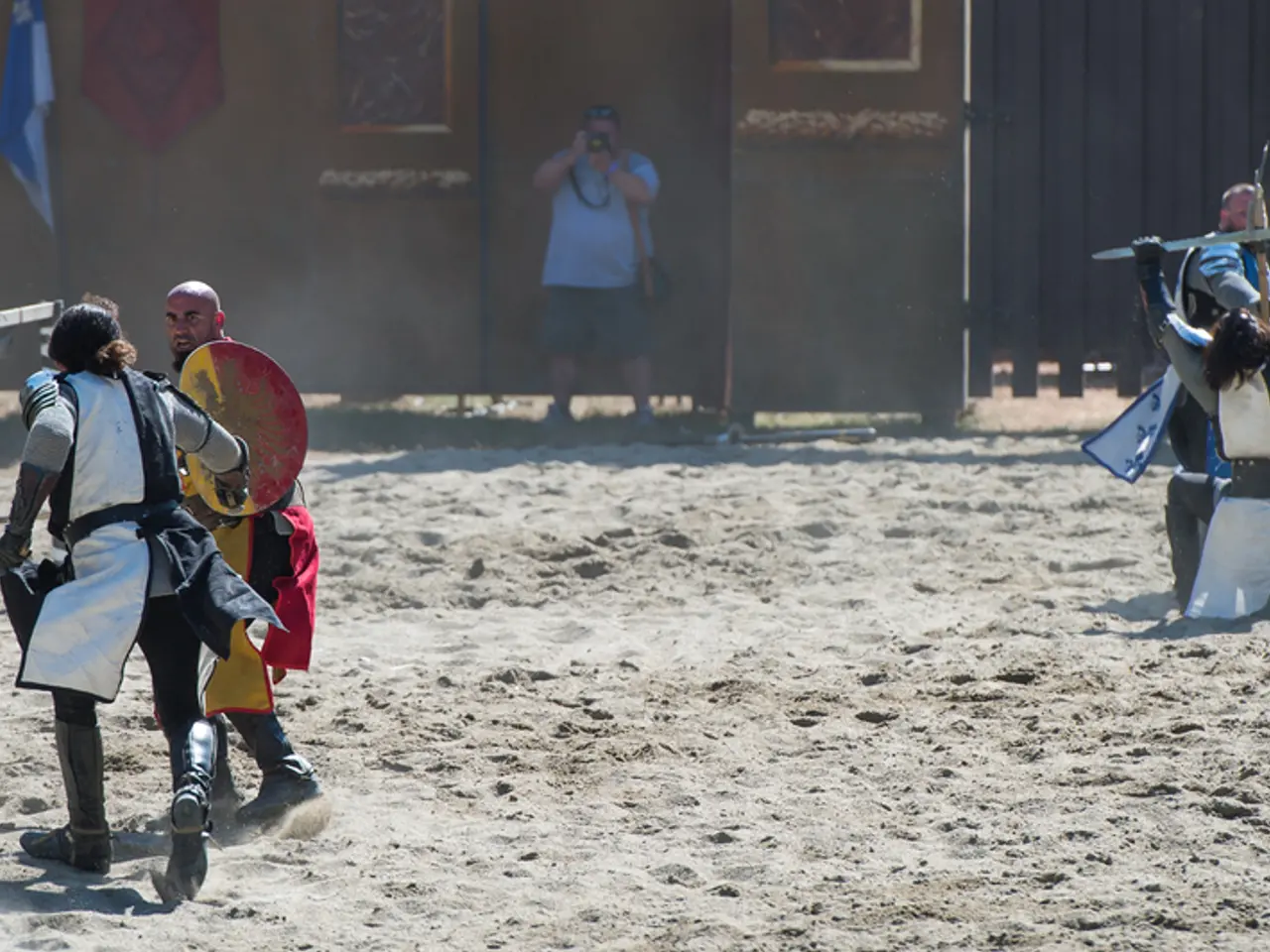International Politics and Qatar's World Cup: Delving into Geopolitical, Security, and Other Challenges Facing the Competition
The 2022 FIFA World Cup has kicked off in Qatar, marking the first time the tournament has been held on the Arabian Peninsula. This global event has brought Qatar into the international spotlight, amplifying its influence and economic diplomacy, as well as raising critical questions about human rights and labor issues.
Qatar's strategic importance is underscored by its hosting of the Al Udeid Air Base, a key U.S. military facility with over 10,000 personnel. As a NATO partner, Qatar has diversified its defense ties with countries including the U.S., Turkey, France, and the UK, highlighting its strategic defense importance.
However, the World Cup has also brought to light concerns about the labor conditions of migrant workers involved in the construction of infrastructure projects. A U.S. federal court ruling has allowed Filipino workers to proceed with forced labor claims against U.S.-based construction companies involved in managing World Cup projects in Qatar. This ruling leverages U.S. extraterritorial jurisdiction under human trafficking laws, but Qatari employers are not directly subject to these claims as they do not fall under U.S. jurisdiction.
The One Love campaign, launched by the players competing in the tournament, aims to promote inclusion and equality at this year's World Cup and beyond. The captains of nine European nations will wear rainbow armbands to share their message of inclusion to a worldwide viewing audience. The United States chose not to wear the armband during the matches but will display the One Love crest at their training camp for the duration of the tournament.
The One Love campaign also recognizes the migrant workers lost to the World Cup and advocates for their equal and fair treatment. Migrant workers, mostly from Bangladesh, India, Nepal, and the Philippines, have worked on construction projects in Qatar since 2010. As of February 2021, a total of 6,500 migrant workers have died since 2010.
FIFA president Gianni Infantino, a European, has given an explosive monologue lashing out at critics of Qatar's human rights record, accusing them of hypocrisy and racism. Despite this, Iran's national team was not excluded from the World Cup despite a formal complaint filed by the Ukrainian Association of Football based on human rights violations and alleged support to Russia in Ukraine.
The United States will provide security support during the tournament, as per a memorandum of agreement signed by Qatar's Ministry of Defense. The US Department of Homeland Security has also signed an agreement with Qatar to assist with security during the World Cup.
The 2022 FIFA World Cup in Qatar is a significant event in U.S. geopolitics, cementing Qatar as a key U.S. ally in a geopolitically sensitive region. This dynamic illustrates the intersection of geopolitics, global sports events, and international human rights obligations.
Image credit: Md Shaifuzzaman Ayon
[1] Human Rights Watch. (2022). Qatar World Cup 2022: Migrant Workers' Rights. https://www.hrw.org/campaigns/qatar-world-cup-2022-migrant-workers-rights
[3] United States Institute of Peace. (2022). Qatar World Cup 2022: Geopolitics, Human Rights, and the Intersection of Sports and International Obligations. https://www.usip.org/publications/2022/11/qatar-world-cup-2022-geopolitics-human-rights-and-intersection-sports-and-international-obligations
- Qatar's strategic defense importance is not limited to its partnership with NATO, as it also houses the Al Udeid Air Base, a significant military facility for the United States.
- The United States is providing security support for the 2022 FIFA World Cup in Qatar, as per an agreement signed by Qatar's Ministry of Defense.
- The One Love campaign, initiated by players participating in the World Cup, extends its message beyond inclusion and equality, also advocating for the fair treatment of migrant workers who have worked on construction projects in Qatar since 2010.
- In the realm of sports and global events, geopolitical interests and human rights obligations often intersect, as seen in the context of the 2022 FIFA World Cup in Qatar.






